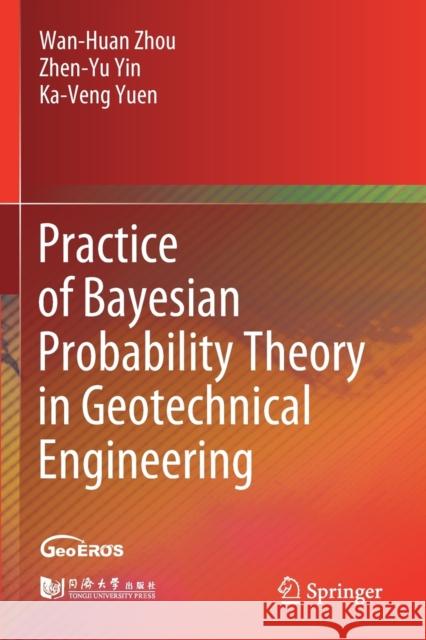Practice of Bayesian Probability Theory in Geotechnical Engineering » książka
topmenu
Practice of Bayesian Probability Theory in Geotechnical Engineering
ISBN-13: 9789811591075 / Angielski / Miękka / 2021 / 354 str.
Practice of Bayesian Probability Theory in Geotechnical Engineering
ISBN-13: 9789811591075 / Angielski / Miękka / 2021 / 354 str.
cena 605,23
(netto: 576,41 VAT: 5%)
Najniższa cena z 30 dni: 578,30
(netto: 576,41 VAT: 5%)
Najniższa cena z 30 dni: 578,30
Termin realizacji zamówienia:
ok. 16-18 dni roboczych.
ok. 16-18 dni roboczych.
Darmowa dostawa!
This book introduces systematically the application of Bayesian probabilistic approach in soil mechanics and geotechnical engineering. Four typical problems are analyzed by using Bayesian probabilistic approach, i.e., to model the effect of initial void ratio on the soil–water characteristic curve (SWCC) of unsaturated soil, to select the optimal model for the prediction of the creep behavior of soft soil under one-dimensional straining, to identify model parameters of soils and to select constitutive model of soils considering critical state concept. This book selects the simple and easy-to-understand Bayesian probabilistic algorithm, so that readers can master the Bayesian method to analyze and solve the problem in a short time. In addition, this book provides MATLAB codes for various algorithms and source codes for constitutive models so that readers can directly analyze and practice.
This book is useful as a postgraduate textbook for civil engineering, hydraulic engineering, transportation, railway, engineering geology and other majors in colleges and universities, and as an elective course for senior undergraduates. It is also useful as a reference for relevant professional scientific researchers and engineers.











